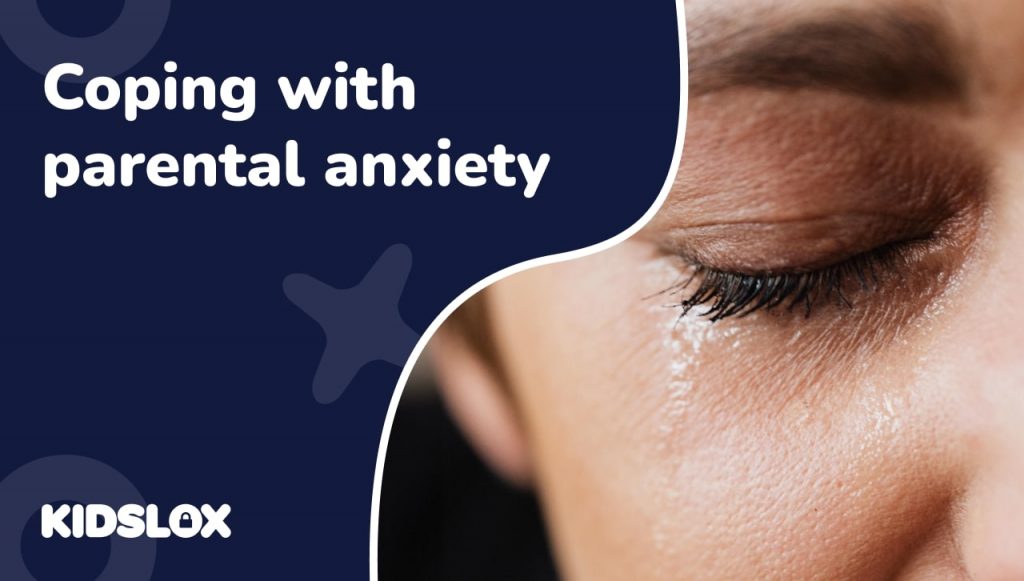Understanding and addressing the mental and emotional impact of raising children
Parenting is an incredible journey filled with love, joy, and countless memorable moments. However, beneath the surface of the smiles and laughter, many parents silently grapple with the weight of parental anxiety.
In today’s fast-paced world, the demands and expectations placed on parents can sometimes lead to overwhelming stress. This Guide To delves into the often-overlooked topic of parental anxiety, shedding light on its impact and providing guidance on how to overcome it.
Parental anxiety is not just a personal struggle; it can have profound consequences for both caregivers and their children. It’s crucial to recognize and address this issue, as untreated parental anxiety can affect a family’s overall well-being. From strained relationships to impact on child development, the repercussions of parental anxiety can be far-reaching. Fortunately, there are effective strategies and resources available to help parents navigate this challenging journey.
Understanding Parental Anxiety
In the following sections, we’ll explore various aspects of parental anxiety, including its definition, common triggers, and emotional toll. We’ll also delve into the intersection of parental anxiety with depression, particularly its impact on mothers. Recognizing the symptoms of parental anxiety is essential, and we’ll provide insights into identifying signs and symptoms, including a deeper look at “anxious mother syndrome.”
Furthermore, this blog post will delve into the profound impact of parental anxiety on children. We’ll discuss the emotional and behavioral consequences children may experience when raised by anxious parents and explore the potential long-term effects on their development.
To offer practical solutions and hope, we’ll provide guidance on how to overcome parental anxiety. From seeking professional help to implementing self-help strategies and making lifestyle changes, we’ll share actionable steps for parents to regain control and enjoy a healthier, anxiety-free parenting journey.
Recognizing Parental Anxiety Symptoms
You may be concerned for your own mental health, or that of a friend or family member. And, while parental anxiety can manifest in a variety of ways, recognizing some of the common signs and symptoms is essential for early intervention and support. Some common symptoms include:
- Physical Symptoms
- Muscle Tension: Constant worry and stress can lead to tense muscles, headaches, and body aches.
- Fatigue: Anxiety often disrupts sleep patterns, leading to persistent fatigue.
- Digestive Issues: Nausea, stomachaches, and other gastrointestinal problems can be linked to anxiety.
- Behavioral Signs
- Excessive Worry: Constantly thinking about potential dangers or negative outcomes.
- Avoidance: Avoiding situations or activities due to fear and worry.
- Irritability: Becoming easily frustrated or agitated, which can affect relationships.
If these are relatable to you, or a situation with a loved one, read on to learn more about coping mechanisms and strategies to ease the load of parenting stress and anxiety.
What is ‘Anxious Mother Syndrome’? A Deeper Look:
A misnomer, ‘Anxious Mother Syndrome’ isn’t confined to a mothers’ experience of parenting. These signs and behaviors can manifest in anyone in an intensive caregiving role.
- Understanding the Syndrome
“Anxious mother syndrome” is a term used to describe the specific challenges faced by caregivers who experience parental anxiety. This syndrome encompasses a range of symptoms and behaviors, including:
- Hyper-Vigilance: Anxious parents may constantly monitor their child’s safety, even in non-threatening situations.
- Perfectionism: Striving for perfection can be a common trait of anxious parenting, leading to unrealistic expectations.
- Guilt and Self-Criticism: Anxious parents often blame themselves for perceived mistakes or shortcomings.
Recognizing the signs and understanding “anxious mother syndrome” are essential steps in addressing parental anxiety. In the upcoming section, we will explore the profound impact of parental anxiety on children, shedding light on the emotional and behavioral consequences they may face.
The Impact of Parental Anxiety on Children:
The Ripple Effect of Anxiety on Children
Parental anxiety is not an isolated struggle; it has a profound impact on children within the family. Understanding the ripple effect is crucial to appreciating the importance of addressing parental anxiety. The effects on children can include:
- Emotional Consequences
- Emotional Instability: Children may absorb their parent’s emotional turmoil, leading to their own emotional instability.
- Anxiety in Children: Exposure to parental anxiety can increase the risk of anxiety disorders in children.
- Behavioral Implications
- Modelling Behavior: Children often imitate their parents’ behavior. Anxious parents may inadvertently teach their children to be anxious.
- Behavioral Challenges: Parental anxiety can lead to inconsistent discipline and difficulty in setting boundaries.
Long-Term Effects on Child Development
- Attachment and Bonding Issues
- Insecure Attachment: Children may struggle to form secure attachments with anxious parents.
- Impaired Bonding: The constant worry and preoccupation of anxious parents can hinder the parent-child bonding process.
- Cognitive and Social Development
- Cognitive Impact: Parental anxiety can interfere with a child’s cognitive development, affecting learning and problem-solving abilities.
- Social Challenges: Children raised by anxious parents may struggle with social skills, making it harder to form healthy relationships.
Understanding the potential consequences of parental anxiety on children underscores the urgency of addressing and managing parental anxiety effectively. In the next section, we will provide guidance on how parents can overcome this challenge and create a more positive family environment.
Strategies to Overcome Parental Anxiety
Seeking Professional Help
- Therapy Options
- Counselling: Individual or family counselling can provide a safe space to discuss anxieties, learn coping strategies, and improve communication within the family.
- Cognitive-Behavioral Therapy (CBT): CBT is an evidence-based approach that helps individuals identify and change negative thought patterns and behaviors.
- Group Therapy: Joining a support group with other parents facing similar challenges can provide a sense of community and shared learning.
- Medication and Its Role
- Consulting a Psychiatrist: In some cases, medication may be recommended by a mental health professional to manage severe anxiety or depression.
- Balancing Medication and Therapy: Medication can be a useful adjunct to therapy, but it’s essential to discuss the potential benefits and risks with a qualified psychiatrist.
Self-Help and Coping Strategies
- Mindfulness and Relaxation Techniques
- Mindfulness Meditation: Practicing mindfulness can help parents stay present and reduce anxious thoughts.
- Deep Breathing: Simple deep breathing exercises can be effective in managing moments of anxiety.
- Yoga and Exercise: Regular physical activity can reduce stress and improve overall well-being.
- Building a Support Network
- Family and Friends: Lean on trusted friends and family members for support and understanding.
- Parenting Groups: Join local or online parenting groups to connect with others who share similar experiences.
- Professional Support: Consider hiring a childcare provider or seeking respite care to give yourself a break and reduce stress.
Lifestyle Changes for Managing Anxiety
- Diet and Exercise
- Balanced Diet: Eating nutritious foods can positively impact mood and energy levels.
- Regular Exercise: Engaging in physical activity releases endorphins, which can help alleviate anxiety.
- Sleep and Stress Management
- Prioritize Sleep: Ensure you and your child get adequate rest, as sleep deprivation can exacerbate anxiety.
- Stress Reduction: Explore stress management techniques such as journaling, hobbies, or relaxation practices.
By implementing these strategies, parents can regain control over their anxiety and create a more nurturing family environment. In the next section, we will share real-life success stories and practical advice from experienced parents who have overcome parental anxiety. These stories and tips will inspire and provide hope to those currently facing this challenge.
Parenting with Depression: A Closer Look
Anxiety and depression are conditions that professionals know are very closely linked. When understanding parental anxiety, its challenges, signs and symptoms, we must also look at depression, how it interacts with anxiety, and what to do if you feel depressed.
Depression is a complex and often debilitating mental health condition that doesn’t look the same for every person. While each sufferer’s experience is unique, some common symptoms of depression include:
- Persistent Sadness: A deep and persistent feeling of sadness or emptiness that doesn’t seem to lift.
- Loss of Interest: A noticeable decrease in interest or pleasure in previously enjoyed activities, including parenting and spending time with your children.
- Fatigue: Overwhelming tiredness and a constant lack of energy, which can make even routine tasks challenging.
- Changes in Appetite: Significant changes in appetite, leading to either overeating or a loss of interest in food.
- Sleep Disturbances: Insomnia or oversleeping, disrupting sleep patterns.
- Feelings of Worthlessness: A pervasive sense of worthlessness or excessive guilt over minor mistakes.
- Difficulty Concentrating: An inability to concentrate, make decisions, or focus on tasks.
- Physical Symptoms: Depression can also manifest with physical symptoms such as headaches, digestive problems, and unexplained aches and pains.
Parenting with depression presents unique challenges, as the symptoms of depression can directly affect a parent’s ability to care for their children effectively. These challenges may include:
- Emotional Withdrawal: Depressed parents may struggle to express love, joy, or enthusiasm, which can impact the emotional connection with their children. In turn, feelings of guilt can exacerbate the situation, creating a vicious cycle of withdrawal and sadness.
- Lack of Energy: Children, especially young ones, require copious amounts of energy from their caregivers to meet their needs.Fatigue and low energy levels can make it difficult to engage in play or maintain a consistent daily routine.
- Irritability: Depression can lead to irritability and mood swings, making interactions with children strained and unpredictable. It can also lower a parents’ tolerance for the demands of children and teenagers, making it harder to cope day-to-day.
- Difficulty Setting Boundaries: Depressed parents may find it challenging to set and enforce appropriate boundaries, which can lead to behavioral challenges in children. The energy required to upkeep and enforce boundaries, as well as dealing with children’s resistance to them can be hugely difficult for parents who are struggling with their mood.
Seeking Support and Help
Parenting with depression is undoubtedly challenging, but it’s essential to recognize that you don’t have to face it alone. Seeking support is a crucial step toward effective management. Here are some key considerations:
- Professional Help: Consult with a mental health professional who specializes in depression and explore the recommended therapies to help you make sense of, and understand what’s happening.
- Medication: In some cases, medication may be prescribed to alleviate the symptoms of depression and get you back on an even keel. It’s crucial to discuss the potential benefits and risks with a psychiatrist.
- Social Support: Lean on friends and family for emotional support. They can provide encouragement and assistance when needed. Sometimes it’s hard to ask for help, but as the adage goes, ‘it takes a village’, so don’t be afraid to ask for help.
- Parenting Support Groups: Join local or online support groups for parents dealing with depression. These communities can offer valuable insights and a sense of belonging.
- Self-Care: Prioritize self-care practices, such as exercise, a balanced diet, and sufficient sleep. These can help alleviate some of the symptoms of depression. When having children it’s easy to put yourself at the bottom of the pile, but it’s so important to invest in yourself and your own happiness. This is especially true for new parents, and new mothers, who might find the upheaval and change of their new role and identity has a negative impact on their mental health.
Remember that seeking help is not a sign of weakness but a brave step toward better mental health for both you and your children. With the right support and treatment, it is possible to manage depression and provide a loving, nurturing environment for your family.
In the journey of parenting, it’s essential to recognize and address parental anxiety. This silent struggle affects countless parents, and its impact can be far-reaching, touching both parents and their children.
The good news is that there are strategies and resources available to help parents overcome parental anxiety. From seeking professional help and adopting self-help techniques to making lifestyle changes, there are practical steps you can take to regain control and enjoy a healthier, anxiety-free parenting journey.
You are not alone in this journey. Parental anxiety is common and manageable, and there is a community of parents and professionals ready to offer support and guidance. By addressing your anxiety and prioritizing your own mental health and self-care rituals, you can take back control and keep parental anxiety at bay.





